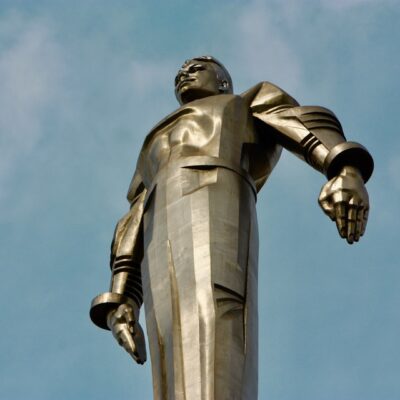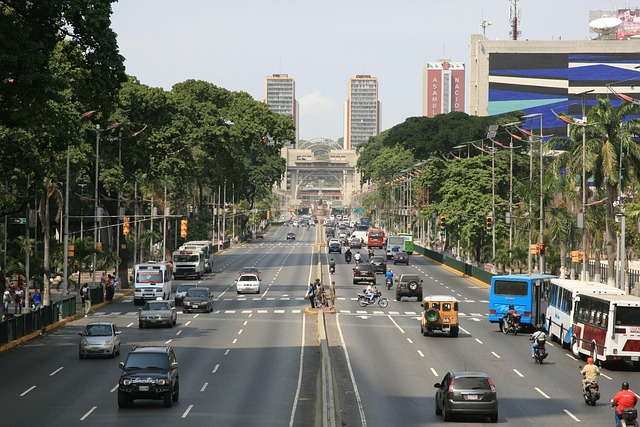 In short, the political confrontations of the 20th century were about three different ideologies, communism, fascism and liberalism. After the Second World War, fascism lost, and in 1991, communism was also wiped off the map after the fall of the Soviet Union.
In short, the political confrontations of the 20th century were about three different ideologies, communism, fascism and liberalism. After the Second World War, fascism lost, and in 1991, communism was also wiped off the map after the fall of the Soviet Union.
What remained was Western liberalism as the sole victor, the battle was settled, and we entered a kind of ideological vacuum chamber.
Many countries in the West began to dismantle their military resources, and even Putin turned westwards at that time, proposing a free trade area from Lisbon to Vladivostok, the Russians even considered joining NATO.
Well, those days are gone, and it’s hard to believe that such an era even existed. Today’s liberalism has mutated beyond recognition, with the surveillance society, the nanny state and Covid tyranny, etc. All the ideologies finally failed, and speculation about a fourth political direction has been launched by various thinkers.
The question is what are we looking for?
First, the picture of the struggle of the three ideologies among themselves is not quite so simple as described above. Communism was a reaction against classical liberalism in the 19th century, and fascism was a reaction against communism and liberalism. And the winning party, Western liberalism, was not identical with 19th century liberalism.
The liberal movement of our time (social liberalism) was born after the two world wars, and it opposed not only fascism and communism, but also its own roots in classical liberalism (conservatism).
And then we are already up to four different ideologies, but most of them do not distinguish between the different liberal tendencies even if they are essentially different. Many see liberalism as a continuous trend from the late 18th century onwards to our own time. The differences are described in terms of necessary development.
Classical liberalism/conservatism is essentially distinct from contemporary social liberalism/social democracy. But today’s liberals often like to explain the differences in terms of constant positive evolution, or so-called whiggery.
Let me give a few examples. At the beginning of the 20th century, there were voting limits, barriers for people who wanted to participate in political life. You couldn’t be convicted, bankrupt, underage or have mental health issues, etc., but even individuals below a certain income were not allowed to vote in elections.
The abolition of voting limits was seen as an emancipation, and positive social development, but there was a point in not allowing certain people to vote, regardless of what we think of the matter today. People who were poor or sloppy with their finances were not considered to be suited to influence political issues, which often involved economics and required a comprehensive understanding of the market etc. The same applied to people who were not in their right mind.
The fact that women were not allowed to vote was mostly because they did not have their own economy, it was often the man who worked in the bourgeois families. And although most working-class women worked, their income was not high enough to get them over the voting limit. When men with lower incomes got the vote, so did women.
To further illustrate my point, it was not an internal reform or development to remove the voting limits but it was an upheaval, a completely different kind of politics that took over. The old liberals didn’t want the poor, the convicted, the insane, etc. to be able to vote. There was a democratic point, in their view, in not allowing these groups to vote. It wasn’t out of pure malice that they had restrictions. What would happen if these groups were allowed to influence society, they asked? Would we have anarchy, mob rule, where the least fit would end up running the country in the wrong direction, because they were not capable of making difficult political decisions?
While the progressive forces saw their own voters increase significantly with the freeing up of the vote. After such reforms, the old forces would never recover, and the masses willingly allowed themselves to be swayed by simple messages and bold headlines. Constant reform and improvement became the watchword for many years, until we entered the post-modern society where nothing could be improved any more, as everything was complete, which would not stop the progress of the improvers and the bunglers. And this illustrates the inherent weakness of liberalism, there is, as it were, no end to its quest for freedom. In the end, children are freed from parents and fools from carers, or new groups are invented to be freed.
In the end, the old liberals became nothing more than a frictional force in the political game, constantly abandoning their ideological trump cards, after first acting as a brake for a few years. A kind of social liberals who constantly discover things five years too late. Western liberalism is thus made up of these two forces: a progressive part, and a part that nicely follows along, without a vision of its own, just friction.
So, it’s not just about seeking a new fourth ideology, but perhaps also about rediscovering a forgotten one?
Nostalgia with all due respect, but it would be very difficult to go back to a more classical liberal society today. Would large sections of the population be content to have the right to vote withdrawn? Accepting that they know nothing about politics and economics, and therefore shouldn’t be involved in such things? Would they accept that our leaders were working for the good of the nation and their own people, and that this would sometimes lead to isolationism, self-sufficiency, tariffs and less spending abroad? Non-alignment, more regionalism and less global ambition? The state would concern itself with the big issues, leaving the smaller ones to lower authorities.
Fascism!” some cry with the precocious obedience of a young dog.
No, fascism is an entirely different ideology, where we have no traditional voting rights or pluralism, and society’s resources are pooled under the corporate umbrella of the state. So while many like to rant about fascists from time to time, there is no place for such ideological muddling if one is to understand things properly.
In conclusion, Western so-called liberalism won the political battle in 1991, and the brutal 20th century ended prematurely. Now all would be peace and quiet, without risking a return to the darkness and misery of the past. That soft Western liberalism would engage in censorship, surveillance, control, restrictions, war – that was not something we could have imagined, and we still pretend it is not true.
While we search by candlelight for a fourth ideology, the prevailing ideology continues to mutate into ever more frightening forms. There are growing indications that the next political direction should be a non-ideology, and that the time of the great overarching social theories is over.







